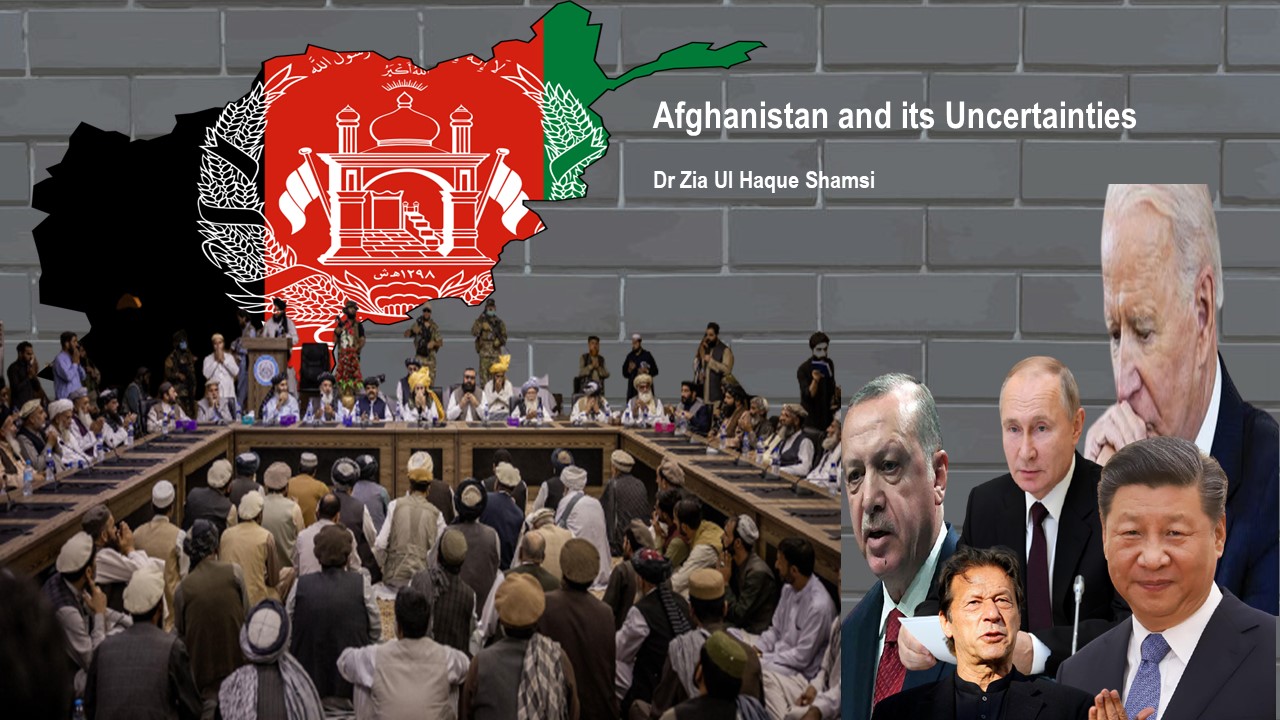Now that the Taliban are responding to calls by regional states like China, Russia and Pakistan to establish an all-inclusive government in Afghanistan to gain worldwide recognition, US President Biden has also announced a few concessions for humanitarian aid needed to avert a looming crisis due to shortage of food, and funds to run the war-ravaged countries. However, this has not been an easy ride either for the Taliban or the regional states, particularly Pakistan.
Pakistan’s politico-military leadership has been relentlessly working to ease tensions between the Western world and the incumbent Taliban administration in Afghanistan. Pakistan’s Prime Minister Imran Khan has been constantly grilled by the international media over his position of support for the Afghan Taliban and the possible timeframe in which he would announce their formal recognition. The PM has given numerous international media interviews over the past two weeks and consistently maintained that Pakistan would accord formal recognition to the Taliban government in Afghanistan in consultation with regional partners. He has maintained that no other country has suffered more than Pakistan due to the Afghan wars over the past four decades. Indeed, the country’s economy endured a loss of over USD 50 billion in the last 40 years, whereas the human loss of over 80,000 lives, which include military, civilian, and children, is incalculable. Inordinate delays in the formation of an all-inclusive government and its global recognition may also lead to a refugee influx towards Pakistan’s borders, which it can ill afford to accommodate because it is already hosting over three million Afghans. Therefore, Pakistan would like to see durable peace and stable political dispensation in Kabul. Khan has also cautioned world leaders that if Afghanistan is abandoned at this time, the consequences would be far more serious than in the past. For example, any refugee influx would also affect Afghanistan’s neighbouring countries. Khan has urged global players to engage with the Taliban, and assist them in settling down to govern the erstwhile war-torn state, before an impending crisis due to lack of food and security (for want of financial assistance), unfolds.
During the 76th Annual Session of the United Nations General Assembly (UNGA), Khan urged that “Afghan leaders must now seize this historic opportunity to achieve reconciliation and restore peace in their war-torn country.”
He insisted that “the process must be Afghan-led and Afghan-owned, and without any interference or outside influence.”
As the PM, Pakistan’s National Security Advisor (NSA) Dr Moeed Yusuf has also been critical of “the world’s ‘wait and watch’ policy on recognising Afghanistan’s Taliban regime as a flawed strategy that would push the war-ravaged country further towards economic collapse.”
Yusuf declared that humanitarian assistance was not an answer to the Afghan crisis, and called for adequate financial support to the new Afghan set-up so that the country can be governed effectively. Pakistan’s military leadership is also making efforts for the peaceful transformation of Afghanistan to a stable and peaceful state, which is not used by regional terror groups as a base camp ever again. Chief of the Army Staff General Qamar Javed Bajwa has assured the nation that, “Pakistan’s borders were secure despite the challenges the country faces and that the Armed Forces were prepared to meet any situation.”
Apart from the diplomatic front, on the ground, Pakistan’s Embassy in Kabul remained opened even when no other nation operated its Counsellor Service and earned praise for its humanitarian assistance provided to exiting staff of different nations without any discrimination of region or diplomatic affiliations.
Pakistan has been making these relentless efforts on several fronts to assist the new Afghan government to settle down quickly since unnecessary delays in its formation and international recognition may be harmful for beginning a new era of peace and progress in Afghanistan. In this regard, maintaining close contact and consultation with regional countries, especially China, Russia and Iran, to achieve consensus is a step in the right direction.
The writer is the author of the book ‘Nuclear Deterrence and Conflict Management Between India and Pakistan’. He is presently working as Director at the Centre for Aerospace & Security Studies (CASS). The article was first published in Daily Times. He can be reached at cass.thinkers@gmail.com
Image Source:Etfa Khurshid Mirza




